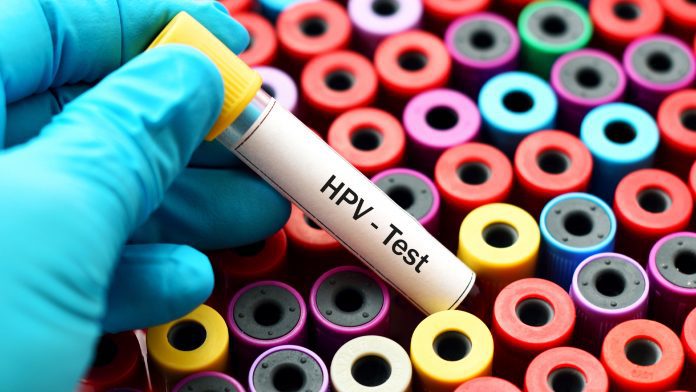
A new study pioneered by King’s College London and funded by Cancer Research UK has reinforced that extending HPV testing intervals from three to five years for those who have a negative screen result prevents the same number of cancers.
The research included data from 1.3 million women in England and provides reassurance to women and people with a cervix aged between 24 and 49 who test negative for HPV that the new HPV testing protocols are safe and effective. The results confirmed that screening these individuals at five-year intervals prevents the same frequency of cancers as screening at three-year intervals, even if they are not vaccinated against HPV.
The investigation also identified that women in this age group are less likely to develop clinically relevant cervical lesions, which are abnormal changes in the cells that line the cervix known as CIN3+, and cervical cancer, three years following a negative HPV test compared to a negative smear test, with the risk being more than halved.
Dr Matejka Rebolj, the lead author of the study and Senior Epidemiologist at King’s College London, commented: “These results are very reassuring. They build on previous research that shows that following the introduction of HPV testing for cervical screening, a five-year interval is at least as safe as the previous three-year interval. Changing to five-yearly screening will mean we can prevent just as many cancers as before while allowing for fewer screens.”
Advancing cervical cancer prevention
Cervical cancer is predominantly caused by HPV infection, which is usually resolved by the body’s immune system. However, if the virus is not cleared, HPV can trigger abnormal cells to develop in the cervix and, if left untreated, can develop into cancer, which usually takes between 10 to 15 years.
Smear tests, otherwise known as cytology tests, were employed before 2019 to check cervical cells for abnormalities and, if found, would then be analysed for HPV, with these tests being recommended every three years.
However, after emerging scientific evidence, in 2019, the NHS Cervical Screening Programme in England fully implemented primary high-risk HPV testing using cytology as a triage test and kept the screening intervals to three years for those aged 24 to 49. Cervical screening samples are now tested for HPV first as HPV infection occurs before abnormal cell development, meaning HPV testing identifies more women at risk of cervical cancer.
Exploring the safety of HPV testing intervals
In this novel study, researchers from King’s College London, the University of Manchester, and the NHS analysed data from the NHS Cervical Screening Programme in England, discovering that HPV testing is more accurate than cytology testing. The investigators followed people attending the screening for two rounds, the first between 2012 and 2016 and a follow up at the end of 2019.
The analysis illuminated that people under 50 who were eligible for screening and had a negative HPV test in the first round had a lower risk of detecting CIN3+ in the second round compared to cytology. For example, 1.21 in 1000 people had a detection of CIN3+ following a negative HPV test compared to 4.52 in 1000 people after a negative cytology test.
Currently, the NHS Cervical Screening Programme in England invites women and people with a cervix aged 25 to 49 who have a negative HPV screen to test every three years, with people aged 50 to 64 to test every five years or three if they test positive. Scotland and Wales are the first UK countries to implement the new five-year intervals for HPV testing for all age groups, whereas Northern Ireland currently uses cytology tests, although they are switching to HPV primary screening in the future. The new findings may help to reduce costs of cervical cancer screening due to limiting their frequency whilst reassuring women that the new protocols ensure their safety from the disease.
Dr Rebolj added: “This monumental study relied on a multidisciplinary team including those in the NHS Cervical Screening Programme in England, working with women undergoing screening and their samples, and our academic partners. This partnership provides evidence that will best serve the millions of women invited for screening throughout most of their adult lives. These promising results show most women and people with a cervix do not need to be screened as frequently as they are now.”
Michelle Mitchell, Cancer Research UK’s chief executive, said: “This large study shows that offering cervical screening using HPV testing effectively prevents cervical cancer, without having to be screened as often. This builds on findings from years of research showing HPV testing is more accurate at predicting who is at risk of developing cervical cancer compared to the previous way of testing. As with any change to a screening programme, this will be monitored to ensure that cervical screening is as effective as possible for all who take part. It’s important to remember that screening is for people without symptoms. So, if you notice any unusual changes for you, do not wait for a screening invitation – speak to your doctor.”









